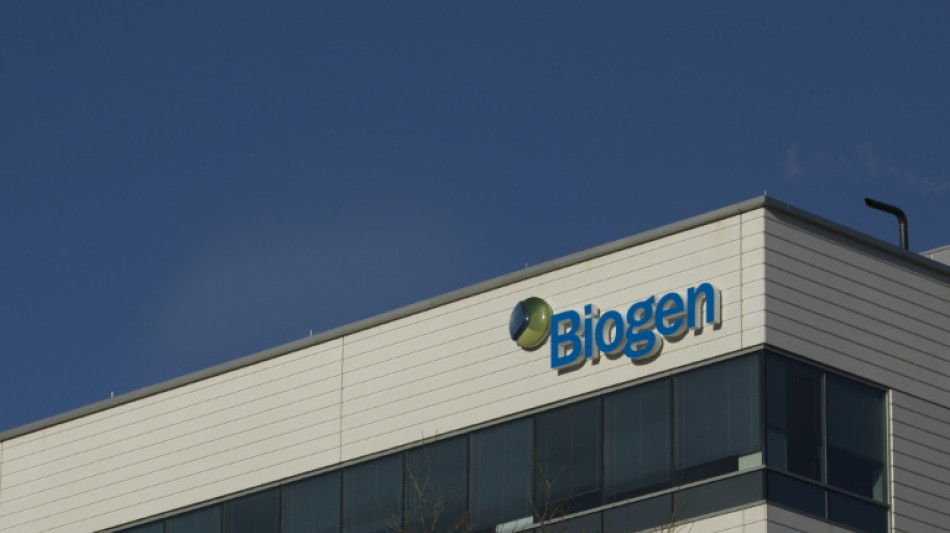
-
 Boys recount 'torment' at hands of armed rebels in DR Congo
Boys recount 'torment' at hands of armed rebels in DR Congo
-
Inside Chernobyl, Ukraine scrambles to repair radiation shield

-
 Bondi victims honoured as Sydney-Hobart race sets sail
Bondi victims honoured as Sydney-Hobart race sets sail
-
North Korea's Kim orders factories to make more missiles in 2026

-
 Palladino's Atalanta on the up as Serie A leaders Inter visit
Palladino's Atalanta on the up as Serie A leaders Inter visit
-
Hooked on the claw: how crane games conquered Japan's arcades

-
 Shanghai's elderly waltz back to the past at lunchtime dance halls
Shanghai's elderly waltz back to the past at lunchtime dance halls
-
Japan govt approves record 122 trillion yen budget

-
 US launches Christmas Day strikes on IS targets in Nigeria
US launches Christmas Day strikes on IS targets in Nigeria
-
Australia reeling on 72-4 at lunch as England strike in 4th Ashes Test

-
 Too hot to handle? Searing heat looming over 2026 World Cup
Too hot to handle? Searing heat looming over 2026 World Cup
-
Packers clinch NFL playoff spot as Lions lose to Vikings

-
 Guinea's presidential candidates hold final rallies before Sunday's vote
Guinea's presidential candidates hold final rallies before Sunday's vote
-
Villa face Chelsea test as Premier League title race heats up

-
 Spurs extend domination of NBA-best Thunder
Spurs extend domination of NBA-best Thunder
-
Malaysia's Najib to face verdict in mega 1MDB graft trial
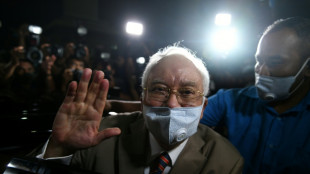
-
 King Charles calls for 'reconciliation' in Christmas speech
King Charles calls for 'reconciliation' in Christmas speech
-
Brazil's jailed ex-president Bolsonaro undergoes 'successful' surgery

-
 UK tech campaigner sues Trump administration over US sanctions
UK tech campaigner sues Trump administration over US sanctions
-
New Anglican leader says immigration debate dividing UK

-
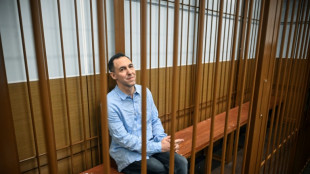 Russia says made 'proposal' to France over jailed researcher
Russia says made 'proposal' to France over jailed researcher
-
Bangladesh PM hopeful Rahman returns from exile ahead of polls

-
 Police suspect suicide bomber behind Nigeria's deadly mosque blast
Police suspect suicide bomber behind Nigeria's deadly mosque blast
-
AFCON organisers allowing fans in for free to fill empty stands: source

-
 Mali coach Saintfiet hits out at European clubs, FIFA over AFCON changes
Mali coach Saintfiet hits out at European clubs, FIFA over AFCON changes
-
Last Christians gather in ruins of Turkey's quake-hit Antakya

-
 Pope Leo condemns 'open wounds' of war in first Christmas homily
Pope Leo condemns 'open wounds' of war in first Christmas homily
-
Mogadishu votes in first local elections in decades under tight security

-
 'Starting anew': Indonesians in disaster-struck Sumatra hold Christmas mass
'Starting anew': Indonesians in disaster-struck Sumatra hold Christmas mass
-
Cambodian PM's wife attends funerals of soldiers killed in Thai border clashes

-
 Prime minister hopeful Tarique Rahman arrives in Bangladesh: party
Prime minister hopeful Tarique Rahman arrives in Bangladesh: party
-
Pacific archipelago Palau agrees to take migrants from US
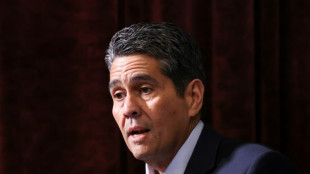
-
 Pope Leo expected to call for peace during first Christmas blessing
Pope Leo expected to call for peace during first Christmas blessing
-
Australia opts for all-pace attack in fourth Ashes Test

-
 'We hold onto one another and keep fighting,' says wife of jailed Istanbul mayor
'We hold onto one another and keep fighting,' says wife of jailed Istanbul mayor
-
North Korea's Kim visits nuclear subs as Putin hails 'invincible' bond

-
 Trump takes Christmas Eve shot at 'radical left scum'
Trump takes Christmas Eve shot at 'radical left scum'
-
3 Factors That Affect the Cost of Dentures in San Antonio, TX

-
 Leo XIV celebrates first Christmas as pope
Leo XIV celebrates first Christmas as pope
-
Diallo and Mahrez strike at AFCON as Ivory Coast, Algeria win

-
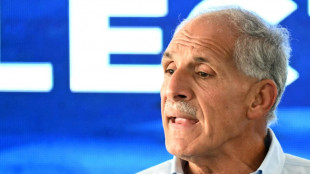 'At your service!' Nasry Asfura becomes Honduran president-elect
'At your service!' Nasry Asfura becomes Honduran president-elect
-
Trump-backed Nasry Asfura declared winner of Honduras presidency

-
 Diallo strikes to give AFCON holders Ivory Coast winning start
Diallo strikes to give AFCON holders Ivory Coast winning start
-
Spurs captain Romero facing increased ban after Liverpool red card

-
 Bolivian miners protest elimination of fuel subsidies
Bolivian miners protest elimination of fuel subsidies
-
A lack of respect? African football bows to pressure with AFCON change

-
 Trump says comedian Colbert should be 'put to sleep'
Trump says comedian Colbert should be 'put to sleep'
-
Mahrez leads Algeria to AFCON cruise against Sudan

-
 Southern California braces for devastating Christmas storm
Southern California braces for devastating Christmas storm
-
Amorim wants Man Utd players to cover 'irreplaceable' Fernandes


European watchdog partially approves new Alzheimer's drug
Europe's medicines watchdog on Thursday partially approved a marketing request for a long-awaited new treatment for Alzheimer's disease, reversing an earlier decision not to give it the green light.
"After re-examining its initial opinion, the EMA... has recommended granting marketing authorisation to Leqembi (lecanemab) for treating mild cognitive impairment or mild dementia due to Alzheimer's disease," the European Medicines Agency said, adding treatment would only apply to a certain group of patients.
Leqembi, developed by US multinational Biogen and Japanese-based Eisai, is the brand name of an active substance called lecanemab that is used to treat adults with mild memory and cognitive problems resulting from the early stages of the common type of dementia.
The EMA in July rejected a marketing request, saying the side effects, including potential brain bleeding, outweighed the benefits.
The EMA now endorsed the treatment, but only for patients with a lower risk of potential brain bleeding -- those who had "only one copy or no copy of ApoE4", a type of gene know as an important risk factor for Alzheimer's.
Such patients are less likely to experience certain serious health problems than people with two copies of the gene, the Amsterdam-based EMA said.
The health problems in question, known as amyloid-related imaging abnormalities (ARIA), include fluid on the brain and brain bleeding.
"The benefits of Leqembi outweigh the risks in patients with mild cognitive impairment or mild dementia due to Alzheimer's disease with one or no copy of ApoE4."
This was "provided that risk minimisation measures are in place to reduce the risk of severe and symptomatic ARIA and monitor its consequences in the long term," it stressed.
Bringing down the risks included providing Leqembi through a "controlled access programme to ensure that the medicine is only used in the recommended patient population" and through MRI scans before and during treatment.
The Amsterdam-based EMA's approval will now be sent to the European Commission for a final decision to roll it out on the continent.
Pricing and reimbursement will be left up to member states, the EMA said.
Lecanemab has been hailed by Alzheimer's researchers and charities for being the first approved treatment which tackles the early stages of the disease, rather than managing the symptoms.
It works by using antibodies which bind to and clear the proteins that normally build up in the brains of people with Alzheimer's, the most common type of dementia.
The treatment has been shown to decrease cognitive decline by a quarter in people in the early stages of the disease.
Britiain's medicines regulator approved lecanemab in August, making it the country's first such licensed treatment.
Leqembi, together with another Alzheimer's drug called Aduhelm, received approval from the US Food and Drug Administration early last year.
F.Schneider--AMWN


